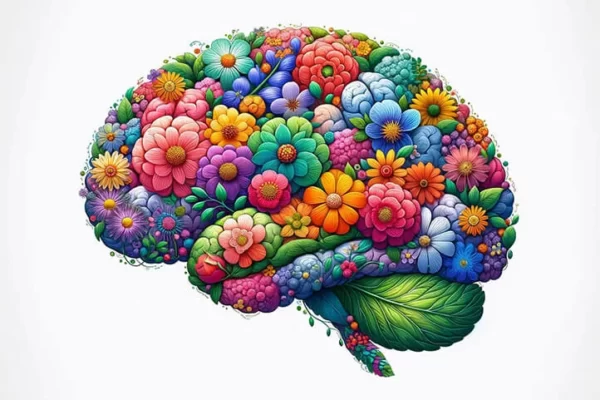Dance movement therapy is a form of psychotherapy where dance and movement are used to help people improve their mental and physical health. This type of therapy is applied in individual or group settings to treat a wide range of psychological issues, including stress, anxiety, depression, trauma, as well as to enhance overall emotional and […]
Codependent Relationships: Between Love and Dependency
Codependent relationships are a type of relationship in which one or both partners are excessively emotionally or psychologically dependent on each other. In such relationships, there is often a loss of individuality and self-sufficiency, where one person becomes overly involved in solving the other’s problems or meeting their needs, often at the expense of their […]
How to Stop Being Jalous and Winding Yourself Up: Advice from a Psychologist
Jealousy is an emotional state that arises when a person feels a threat to important relationships, especially in romantic or family contexts. The feeling of jealousy is usually associated with fears of losing attention, love, or devotion from a loved one, particularly in situations where it seems that this affection or attention may be directed […]
Polyamorous Relationships: How Does It Work in Real Life?
Polyamorous relationships involve participation in multiple romantic or sexual connections with the consent and knowledge of all involved partners. These are relationships between multiple people, built on openness and honesty. The core principles of polyamory include transparency, trust, and mutual consent among participants, distinguishing it from monogamous relationships, which expect exclusivity in romantic and sexual […]
CBT or Cognitive Behavioral Therapy: Changing the Perception of Reality
Cognitive Behavioral Therapy (CBT) is a type of psychotherapy that helps individuals identify and change destructive or dysfunctional thoughts that negatively affect behavior and emotions. The central idea of CBT is that it is our thoughts, not external events, people, or situations, that influence our feelings and behavior.
Bibliotherapy: Deeper than Just Reading, More than Just Literature
Bibliotherapy is a psychotherapeutic approach that uses literature to support a person’s psychological well-being and personal growth. It is based on the idea that reading certain books can have a positive impact on emotional states, thoughts, and behavior.
Inner Child: Secrets of Emotional Freedom
The concept of the “inner child” in psychology refers to the part of an adult’s psyche that retains the perceptions, feelings, and experiences lived through in childhood. This idea is based on the notion that adults are not entirely separated from their childhood emotions and memories. The inner child can manifest in various forms, including […]
Mental Health is the Basis of Emotional Stability and Longevity
Mental health is a state of psychological well-being where a person can realize their potential, cope with everyday life stresses, work productively, and contribute to society. In a broader sense, mental health is not merely the absence of mental disorders and illnesses but also the presence of positive qualities such as emotional resilience, interpersonal interaction, […]
Music Therapy: From Notes to Feelings – The Art of Sound Healing
Music Therapy is a specialized area of psychotherapy that uses music to improve a person’s physical, emotional, cognitive, and social well-being. In the modern world, music therapy is recognized as an important and effective treatment method that has a comprehensive impact on individuals.
Psychodrama: Theatrical Magic of Psychology
Psychodrama is a form of psychotherapy developed by Jacob Moreno, which uses dramatic methods to explore and express psychological, emotional, and interpersonal issues. In psychodrama, participants actively engage in reenacting significant situations from their lives or imaginary scenarios, employing various techniques such as role-playing, dialogue, monologue, and improvisation.
Rehabilitation Psychology: from Theory to Practice
Rehabilitation psychology is a key area in clinical psychology focused on helping people who have experienced severe physical or psychological trauma, illnesses, or chronic conditions. This type of psychology emphasizes restoring functionality, improving quality of life, increasing independence, and enhancing social adaptation of patients.
Fairytale Therapy: The Magic Key to Emotional Well-Being
Fairytale therapy is a method in psychotherapy where fairy tales are used as the primary tool to address people’s emotional and psychological problems. This method relies on the rich symbolism and profound archetypal images found in fairy tales, helping clients understand and process their internal conflicts, fears, and experiences.
What Are Furries: the Mysterious World of Anthropomorphic Creatures
In the modern world, where the diversity of subcultures is becoming increasingly prominent, one group continues to attract particular interest and, at times, misunderstanding – the furries. Who are the furries, and why is this topic relevant to psychological analysis?
Burnout Syndrome: Modern Methods of Prevention and Treatment
Burnout syndrome is a state of physical, emotional, and mental exhaustion caused by prolonged or intense stress. It is most commonly associated with professional activities, particularly in fields that require close interaction with people, such as healthcare, education, or social work.
Types of Self-Esteem: Theories, Methods, Diagnostics
Self-esteem is a fundamental concept in psychology that plays a key role in shaping personality and its interaction with the social environment. By determining an individual’s level of satisfaction with their own “self,” self-esteem influences many aspects of life, from personal growth to professional activities. However, not all types of self-esteem are the same, nor […]














